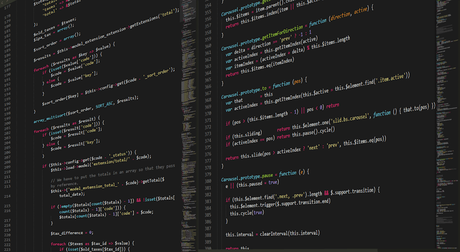Healthcare software development plays a crucial role in improving the efficiency and quality of patient care in today’s digital world. With advancements in technology and an increased demand for innovative solutions, the state of healthcare software development is ever-evolving. In this article, we will explore the current trends, challenges, and opportunities in healthcare software development, and discuss how developers are shaping the future of healthcare delivery.
Table of Contents
- 1. Evolution of Healthcare Software Development
- 2. Current Trends in Healthcare Software Development
- 3. Challenges in Healthcare Software Development
- 4. Impact of Artificial Intelligence on Healthcare Software
- 5. Ensuring Data Security in Healthcare Software Solutions
- 6. The Future of Healthcare Software Development
- Q&A
1. Evolution of Healthcare Software Development
The has been shaped by advancements in technology and the increasing demand for more efficient and effective healthcare systems. Throughout the years, healthcare software has gone through several key developments to meet the changing needs of the industry.
Some of the significant milestones in the include the shift towards cloud-based solutions, the adoption of electronic health records (EHRs), the rise of telemedicine, and the integration of artificial intelligence (AI) and machine learning algorithms. These advancements have not only improved the quality of patient care but have also streamlined processes for healthcare providers, leading to better outcomes and increased efficiency in the delivery of healthcare services.

2. Current Trends in Healthcare Software Development
One current trend in healthcare software development is the shift towards cloud-based solutions. With the increasing need for scalability, flexibility, and accessibility, many healthcare organizations are turning to cloud computing to host their software applications. This allows for improved data storage, collaboration, and security, as well as easier integration with other systems. By leveraging cloud technology, healthcare software developers can provide more efficient and cost-effective solutions for their clients.
Another trend in healthcare software development is the growing focus on interoperability. As healthcare systems become more interconnected, it is crucial that software applications are able to communicate and share data seamlessly. Interoperability ensures that patient information can be accessed and shared across different healthcare providers, improving care coordination and patient outcomes. By designing software with interoperability in mind, developers can help healthcare organizations streamline their operations and deliver better care to patients.
3. Challenges in Healthcare Software Development
One challenge in healthcare software development is ensuring compliance with regulatory requirements. Healthcare software must adhere to strict guidelines set forth by organizations such as the FDA and HIPAA to ensure patient data privacy and safety. Developers must navigate complex regulatory landscape to ensure their software meets all necessary standards.
Another challenge is integrating with existing healthcare systems. Healthcare software often needs to be compatible with various systems already in place within hospitals and other healthcare facilities. This can be a complex process, requiring developers to work closely with IT teams to ensure seamless integration.
4. Impact of Artificial Intelligence on Healthcare Software
Artificial Intelligence has revolutionized healthcare software by enhancing various aspects of patient care, diagnosis, and treatment. Some of the key impacts include:
- Improved Accuracy: AI algorithms can analyze large amounts of medical data to assist healthcare professionals in making more accurate diagnoses.
- Personalized Treatment: AI can tailor treatment plans based on an individual’s unique characteristics, leading to more effective and efficient care.
- Faster Decision-Making: AI-powered systems can process information quickly, helping doctors make faster decisions in critical situations.
Furthermore, AI in healthcare software has the potential to reduce medical errors, optimize operational processes, and enhance patient outcomes. By leveraging the capabilities of AI, healthcare providers can improve overall quality of care and make significant advancements in the field.
5. Ensuring Data Security in Healthcare Software Solutions
When developing healthcare software solutions, it is crucial to prioritize data security to protect sensitive patient information. One way to ensure data security is by implementing robust encryption techniques to securely transmit and store data. Encryption algorithms such as AES (Advanced Encryption Standard) can help protect data both at rest and in transit.
Additionally, access control measures should be put in place to restrict unauthorized access to patient data. Role-based access control (RBAC) can be utilized to ensure that only authorized personnel have access to specific information. Regular security audits and penetration testing should also be conducted to identify and address any potential vulnerabilities in the software system.
6. The Future of Healthcare Software Development
In the ever-evolving field of healthcare software development, the future is filled with exciting advancements and possibilities. With the rapid advancements in technology, developers are continually pushing the boundaries of what is possible in healthcare software. One of the key areas of focus for is improving interoperability among different systems. This will allow for seamless data sharing and integration, leading to more efficient and effective healthcare delivery.
Another focus for the future is the increased use of artificial intelligence and machine learning in healthcare software. These technologies have the potential to revolutionize the way healthcare is delivered by providing more personalized and targeted treatment plans. Additionally, the rise of telemedicine and remote monitoring solutions will continue to expand, allowing for more accessible and convenient healthcare services for patients around the world. Overall, looks promising, with endless possibilities for innovation and improvement.
Q&A
Q: What are the current challenges facing healthcare software development?
A: Healthcare software developers are facing challenges such as ensuring data security and HIPAA compliance, integrating systems from different providers, and keeping up with constantly changing regulatory requirements.
Q: How are advancements in technology impacting healthcare software development?
A: Advancements in technology such as artificial intelligence, blockchain, and telemedicine are transforming the way healthcare software is developed and used. Developers are incorporating these technologies to improve patient care, streamline processes, and enhance data accuracy.
Q: What are some key trends driving healthcare software development?
A: Key trends driving healthcare software development include the focus on interoperability and data exchange, the rise of personalized medicine, and the increasing demand for mobile health applications. Developers are also exploring cloud-based solutions and predictive analytics to improve decision-making and patient outcomes.
Q: What role does user experience play in healthcare software development?
A: User experience is essential in healthcare software development as it directly impacts the usability and effectiveness of the software. Developers must design intuitive interfaces, incorporate feedback from healthcare professionals and patients, and prioritize accessibility to ensure the software meets the needs of all users.
Q: How are developers addressing the growing cybersecurity threats in healthcare software?
A: Developers are implementing robust security measures such as encryption, access controls, and regular security audits to protect sensitive patient data from cyber threats. They are also staying up to date on industry best practices and collaborating with cybersecurity experts to enhance the security of healthcare software applications.
In conclusion, the state of healthcare software development is rapidly evolving to meet the increasing demands and challenges of the healthcare industry. With advancements in technology and innovative solutions, developers are tasked with creating software that is secure, efficient, and user-friendly to support healthcare professionals in delivering quality care to patients. As we look towards the future, collaboration between developers, healthcare providers, and regulatory agencies will be crucial in driving the development of software that advances the quality and accessibility of healthcare services. Stay tuned for further updates on the latest trends and developments in healthcare software development.
The post The State of Healthcare Software Development first appeared on dallaswebsite.design.
